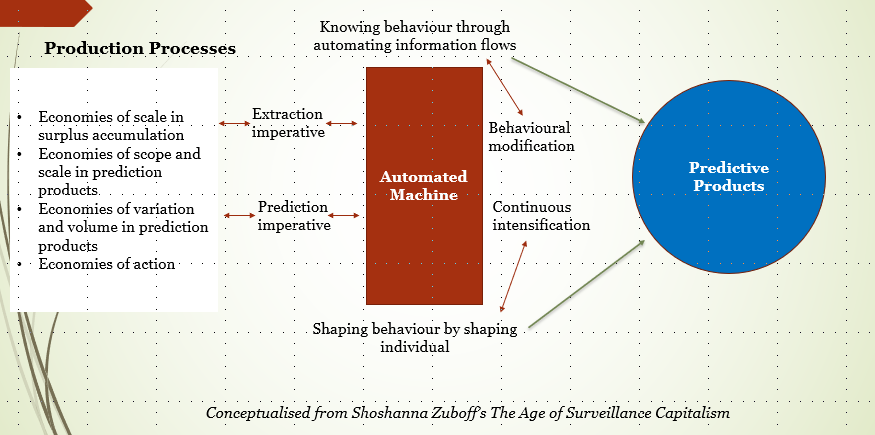
Over the past 20 years, big data has been the primary fuel for maintaining both business and non-business activities with the goal of enhancing everyone’s quality of life. A variety of devices and tools are being used to collect data on people and animals. When using specific technologies to gather data, especially from people and animals, humans must take the initiative. For instance, machines cannot successfully release data to humans without human motivation or, in some cases, influence. Therefore, humans must first touch or supply the necessary data to machines before data can be derived from it and used to alter human behaviour in return.
As noted in one of the previous analyses, in the course of using technologies for personal and collective tasks, people are releasing different footprints. The footprints, according to our analyst, are being captured by creators of the technologies. In the analysis, our analyst referenced Professor Ayo Ojebode of the Department of Communication and Language Arts, University of Ibadan, who stated that erasing one’s digital footprints immediately they are dropped might not be possible because the person who collected had used big data collection tools, which could not be received or deleted by the owner.
In this regard, our analyst notes that people only need to be cautious of what they do in relation to their pursuit of social, economic and political happiness while on the SNSs and using internet-enabled devices. Several studies and news reports have also documented implications of big data capturing on the future of the owners.
Register for Tekedia Mini-MBA edition 19 (Feb 9 – May 2, 2026): big discounts for early bird.
Tekedia AI in Business Masterclass opens registrations.
Join Tekedia Capital Syndicate and co-invest in great global startups.
Register for Tekedia AI Lab: From Technical Design to Deployment (next edition begins Jan 24 2026).

Meanwhile, in the piece, our analyst briefly examines emerging surveillance capitalism coined and explained by Shoshana Zuboff, emeritus professor at Harvard University. Using I Will, We Will and Will, she made a case for how people can make a promise and predict the future while using technologies. Making a promise and predicting the future entails following the promise making and promise keeping trajectory.
In the context of the promise-making concept, I will imply having islands of predictability and guideposts of reliability in an ocean of uncertainty. Will, which represents the future, can occur only when people commit to using their organs to create the needed future while taking into account facts that would allow them to carry out projects they desired. Using technologies to make the future happen, on the other hand, would be disastrous due to emerging surveillance capitalists who own technologies that collect, aggregate, and commodify personal data.
According to the book, behavioural surplus in the form of people’s use of technologies and movement from one location to another must exist first. Capitalists are now investigating the use and variety of behaviour being displayed to create predictive products after employing extraction imperatives that limit and scale the diverse and voluminous accumulated data.
When developing predictive products, the extension and depth of the products are typically considered before entering economies of action that assisted in successfully modifying collected data and having a sense of continuous intensification of the data. Surveillance capitalists, in particular, use automated machines to understand people’s information flows and shape their current and future behaviour in order to create predictive products.


